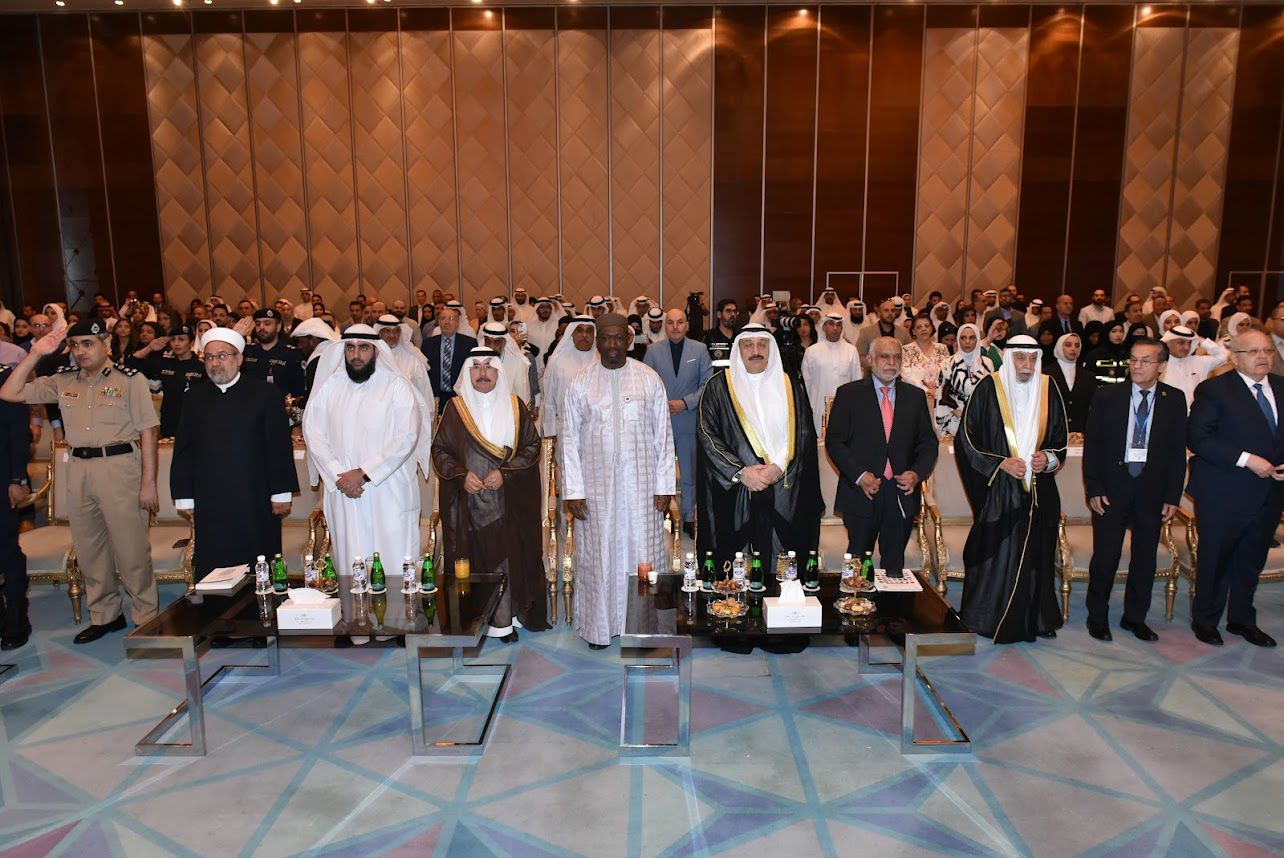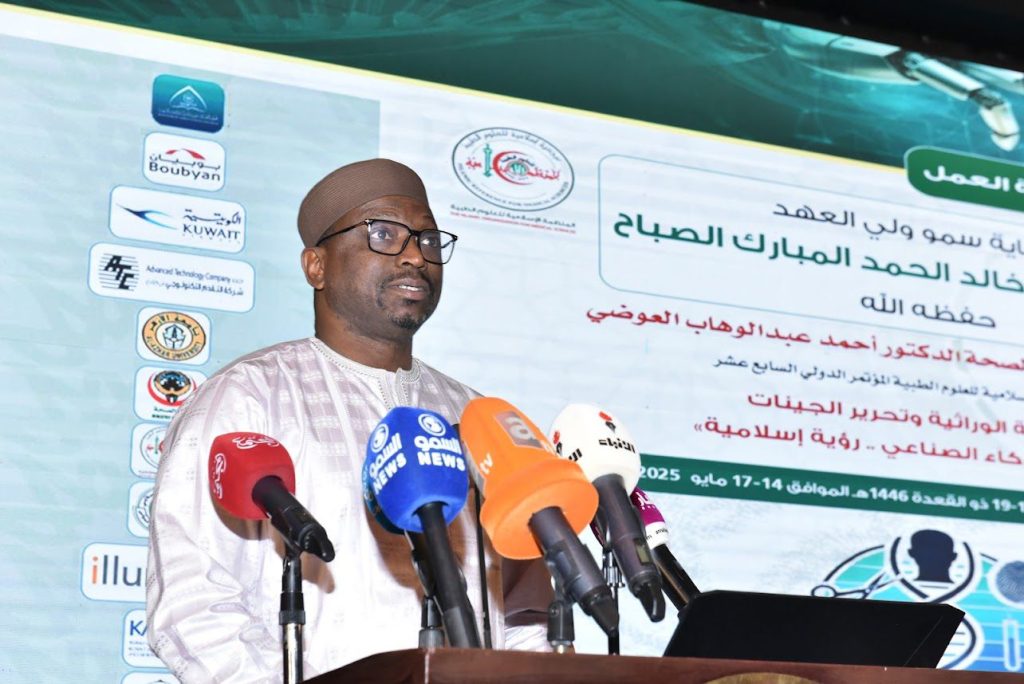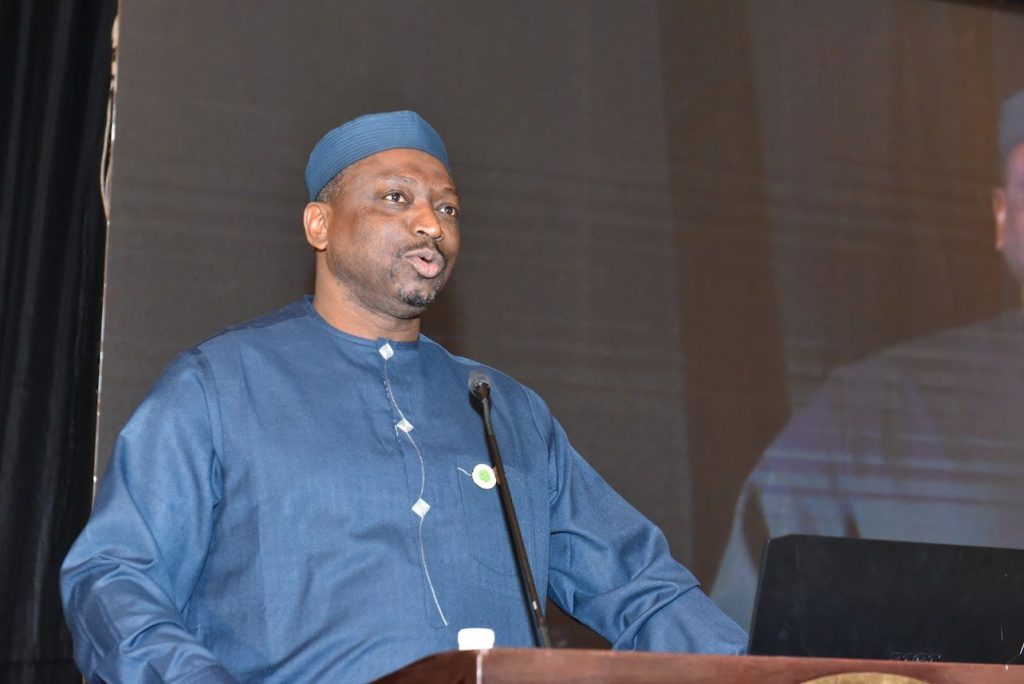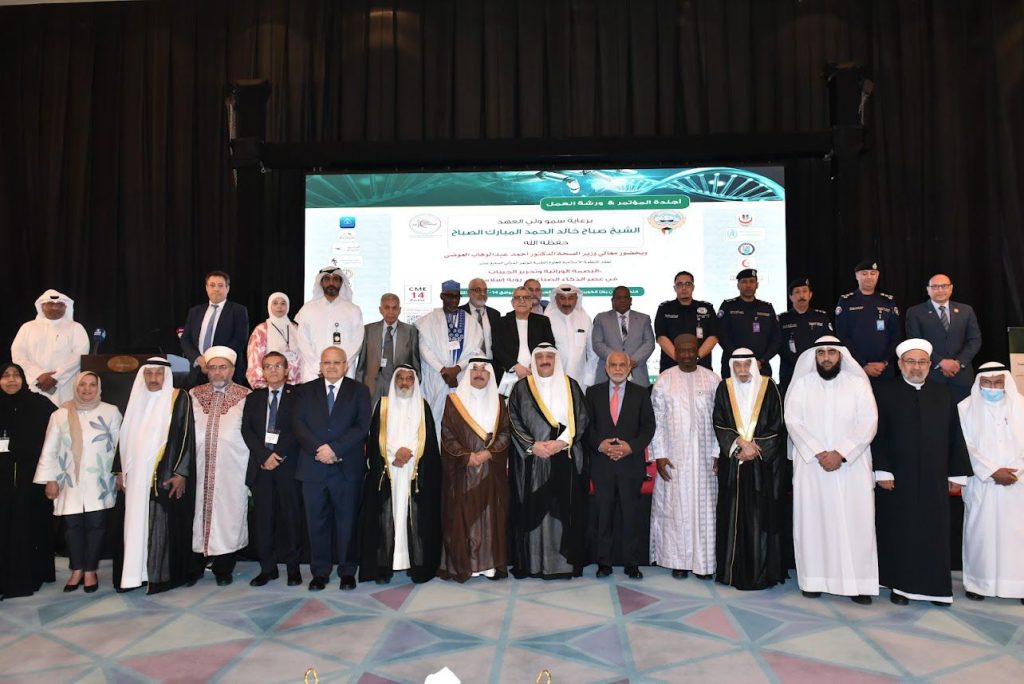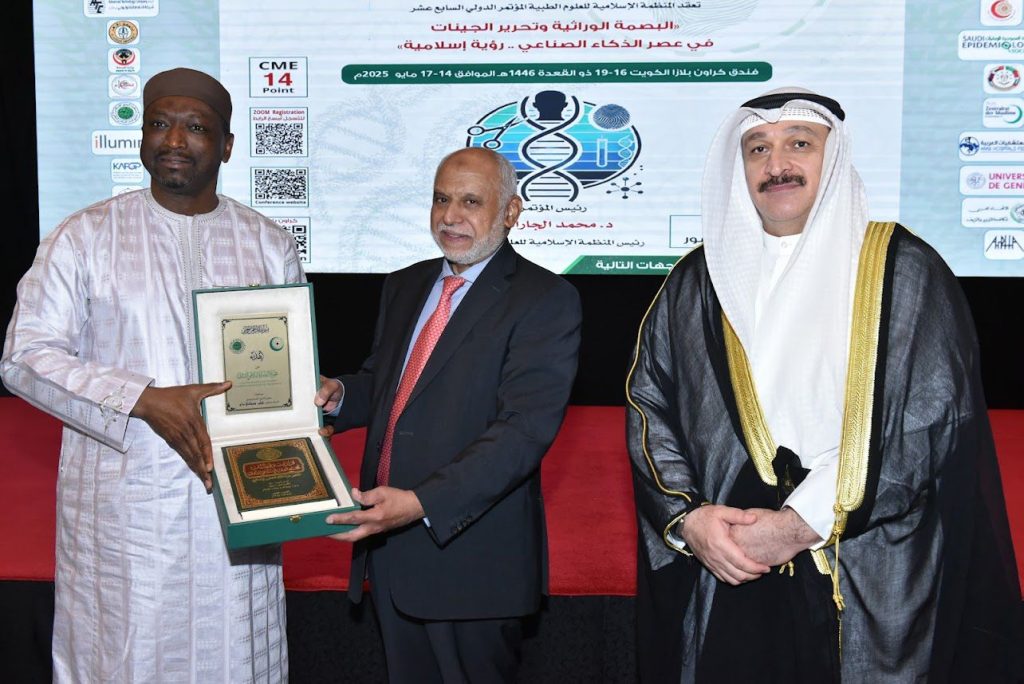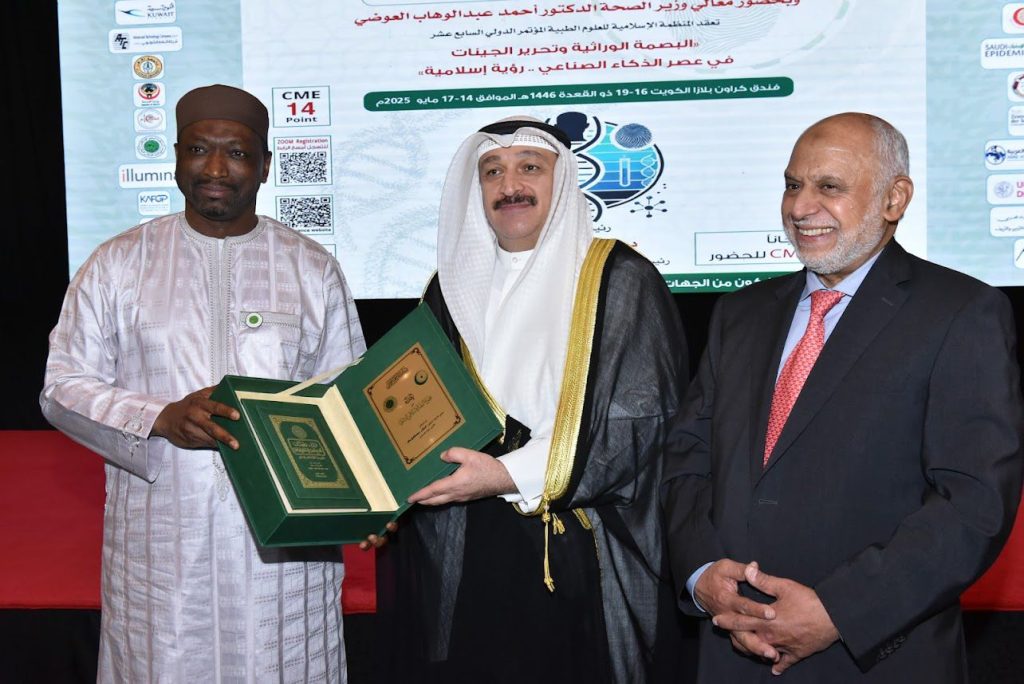
“The rapid progress in the fields of DNA, gene editing, and artificial intelligence calls for a collective institutional ijtihad that provides a solid legal and ethical approach that preserves the dignity of human beings, protects societies’ stability, and avoids the dangers of scientific and technological excesses.”, affirmed H.E. Prof. Koutoub Moustapha Sano, Secretary General of the International Islamic Fiqh Academy (IIFA-OIC) in a speech which he delivered on Thursday evening, 17 Dhul Quida 1446, corresponding to 15 May 2025, during the closing session of the international conference entitled, “DNA and Gene Editing in the Age of AI”, organized by the Islamic Organization for Medical Sciences (IOMS) in Kuwait, with the participation of a number of scientists and experts in medicine, jurisprudence, technology and law.
At the beginning of his speech, His Excellency conveyed the greetings of the members and experts of the Academy, expressing great thanks, appreciation, and gratitude to His Highness Sheikh Mishaal Al-Ahmad Al-Jaber Al-Sabah, Emir of the State of Kuwait, may Allah protect him, and his government for the generous hospitality and warm reception, praising the proactive vision of the Islamic Organization for Medical Sciences, a realistic outlook, and keeping up with the developments of medical science and technology for decades, pointing out that, “It is one of the most noble scientific institutions in the Muslim world, because it is renowned for its scientific precedence, Sharia authenticity, and high research professionalism, which embodies the spirit of integration between both medical experts and Sharia experts”.
His Excellency addressed the conference theme, noting that the title constitutes an “interdimensional knowledge triangle,” explaining that “DNA represents an individual’s genetic identity, that gene editing enables the genetic code to be modified with extreme precision using technologies such as CRISPR-Cas9, and that artificial intelligence has transcended its analytical role to a true partnership in issuing medical and genetic rulings and resolutions.” This makes the need to maximize the opportunities offered by these technologies to treat intractable genetic diseases while emphasizing the importance of paying attention to the legal and ethical challenges raised by these rapid transformations in the world of genetic engineering; he said: “It goes without saying that these enormous transformations, although they seem promising, raise delicate issues related to genetic privacy, data confidentiality, and the possibility of genetic discrimination, not to mention the accompanying legal and ethical challenges.” He then pointed out that the importance of this conference “stems not only from its topic but also from the fact that it is an inclusive space that paves the way for the formulation of a common humanitarian and ethical vision that will guide the formulation of a shared legal and ethical vision. His Excellency stressed, “We need to rebuild the relationship between scientific progress and the values system, between innovation and responsibility, between ambition and conscience, considering that this is the only way to ensure a secure and sustainable future for humanity.”
His Excellency stressed the importance of refraining and keeping away from individual ijtihad in issuing jurisprudential rulings on these critical issues and developments, saying: “The responsible handling and desired interaction with them should be based on an institutionalized collective ijtihad that brings together jurists, doctors, geneticists, legal experts, and specialists in artificial intelligence technologies.” He added that only this collective process is capable of providing solid and balanced answers that respect Sharia objectives and the requirements of the modern age.
In this context, His Excellency called for adherence to the collective resolutions issued by the Academy, which were based on accurate scientific descriptions from the Islamic Organization of Medical Sciences and reliable research centers: “We emphasize the importance of the commitment of fatwa, fatwa and health institutions in Member States and Muslim communities to the Academy Council’s resolutions on artificial intelligence, genetic fingerprinting, the human genome, and genetic engineering, in order to preserve the unity of the intellectual and legal reference of the Ummah.” His Excellency also emphasized the Council’s openness to review its resolutions when data changes, or facts renew, based on a fundamental rule that states: “There is no objection in the alteration of fatwa with the change of times, places, circumstances, and customs.”
His Excellency then extended his thanks and appreciation to H.E. Sheikh Sabah Khalid Al-Hamad Al-Mubarak Al-Sabah, Crown Prince of Kuwait, for his generous patronage of the conference, to H.E. Dr. Ahmad Abdulwahab Al-Awadi, Minister of Health, for his support and follow-up to the conference, and H.E. Dr. Mohammad Ahmad Al-Jarallah, President of the Islamic Medical Sciences Organization, for organizing this milestone conference. On this occasion, His Excellency called for “submitting the recommendations of the conference to the International Islamic Fiqh Academy as a scientific basis for robust collective resolutions after they are revised, refined, and perfected.”
His Excellency did not fail to express his deep gratitude to the “invisible soldiers” at IOMS, praising their giving, saying: “Abundant thanks and appreciation to the loyal invisible soldiers at the IOMS, especially H.E. Dr. Abdul Latif Al Murr, Assistant Secretary General of IOMS, for the excellent follow-up and coordination.” In a symbolic gesture expressing the Academy’s keenness to disseminate knowledge and integrate references, the Secretary General presented two copies of the fifth edition of the book “Resolutions and Recommendations of the Academy” to the Minister of Health and the President of IOMS in appreciation of the fruitful cooperation between the two institutions and out of belief in the need to spread Sharia reference in the Muslim world’s health and scientific circles.
Read Also
Lastest
